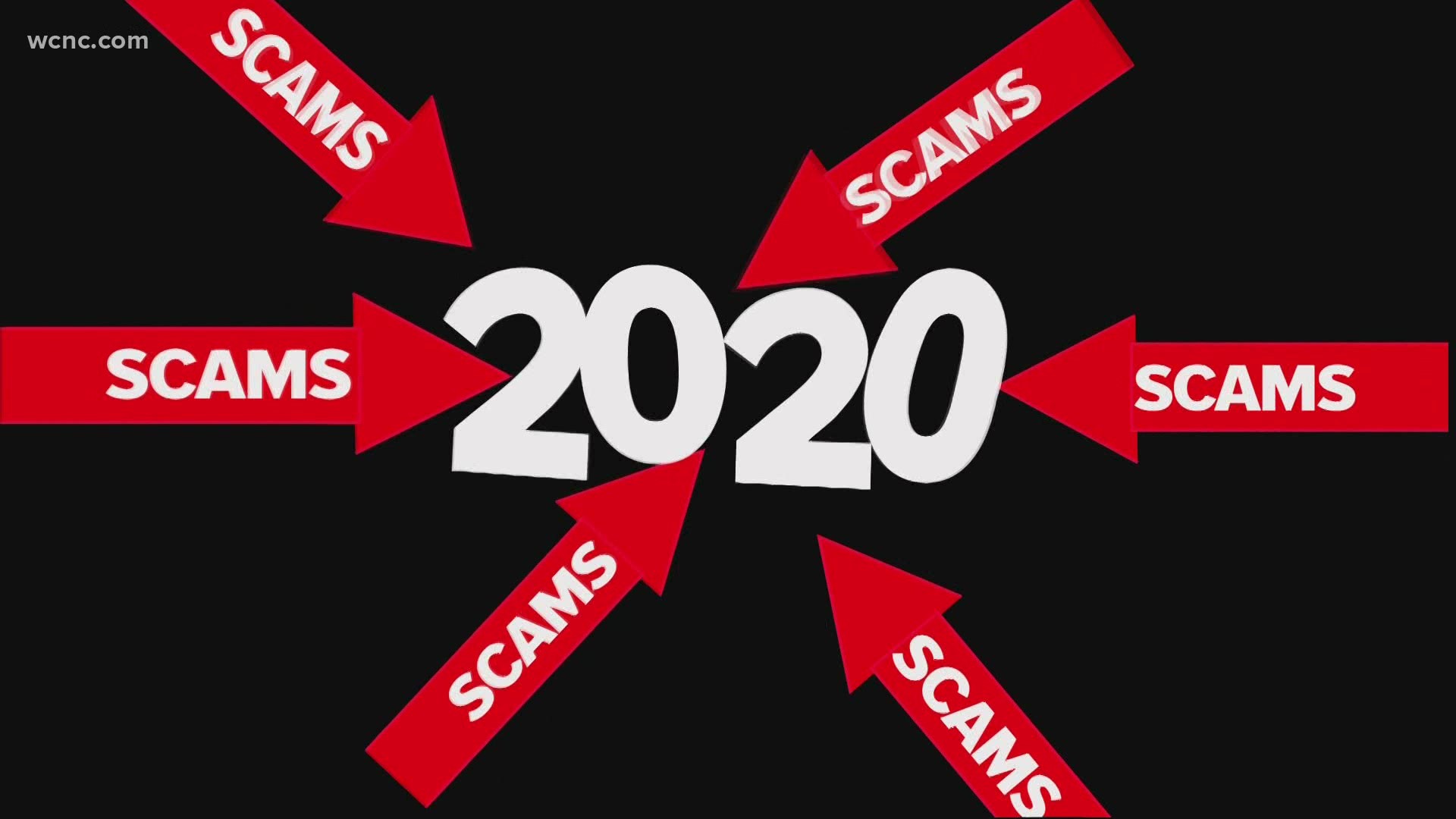CHARLOTTE, N.C. — It's no secret that 2020 wasn’t a good year -- but it was a good year for scam artists.
The Better Business Bureau is reporting that scams are up over the previous year which means Law Enforcement and consumer protection advocates have been busier than ever.
Is this going to be a trend for the year ahead?
“It is shaping up that way, especially if January and February are any indicators. There is an old saying, today’s headlines are tomorrow's scams and the headline of the day right now is stimulus and lots of it,” Tom Bartholomy of the Charlotte Better Business Bureau said.


Computer scams, texting scams, robocall scams. It was thrown at consumers from all directions and in 2020 scammers were attacking all ages. Scammers called 80-year-old Paul in late 2020 and ended up in his computer and then bank account with a virus protection scam.
Fakers used a legitimate company and a good ruse, one that took months for Paul to straighten out with his bank.
“It’ll haunt you for weeks,” Paul said.


Luckily, Paul got all his money back, but he is part of the 25% increase in scams in 2020, 103 pandemic-related scams and counting. Vaccine, stimulus, work at home scams, you name it.
Bartholomy has been helping WCNC Consumer Reporter Bill McGinty sort out scams for years. So far, January and February of this year have been just as ripe, especially with a 1.9 trillion-dollar stimulus package getting ready to drop money into your mailbox.
That’s on top of the unemployment scams which seem to be the most prevalent, targeting the 18-24-year age group.
“That group is more trusting, less savvy on scams, and willing to “click here” in a blind message or email,” Bartholomy said.
“When they just blindly click here, they are not realizing what they are doing is loading malware on to their system, or up comes a pop-up box asking for your name, address, social security number, and banking information because we are going to pay you by direct deposit into your account,” said Bartholomy.
This is a demographic that might be a bit more gullible, so parents, this is the time to warn them about those opportunities and jobs that might seem too good to be true.

